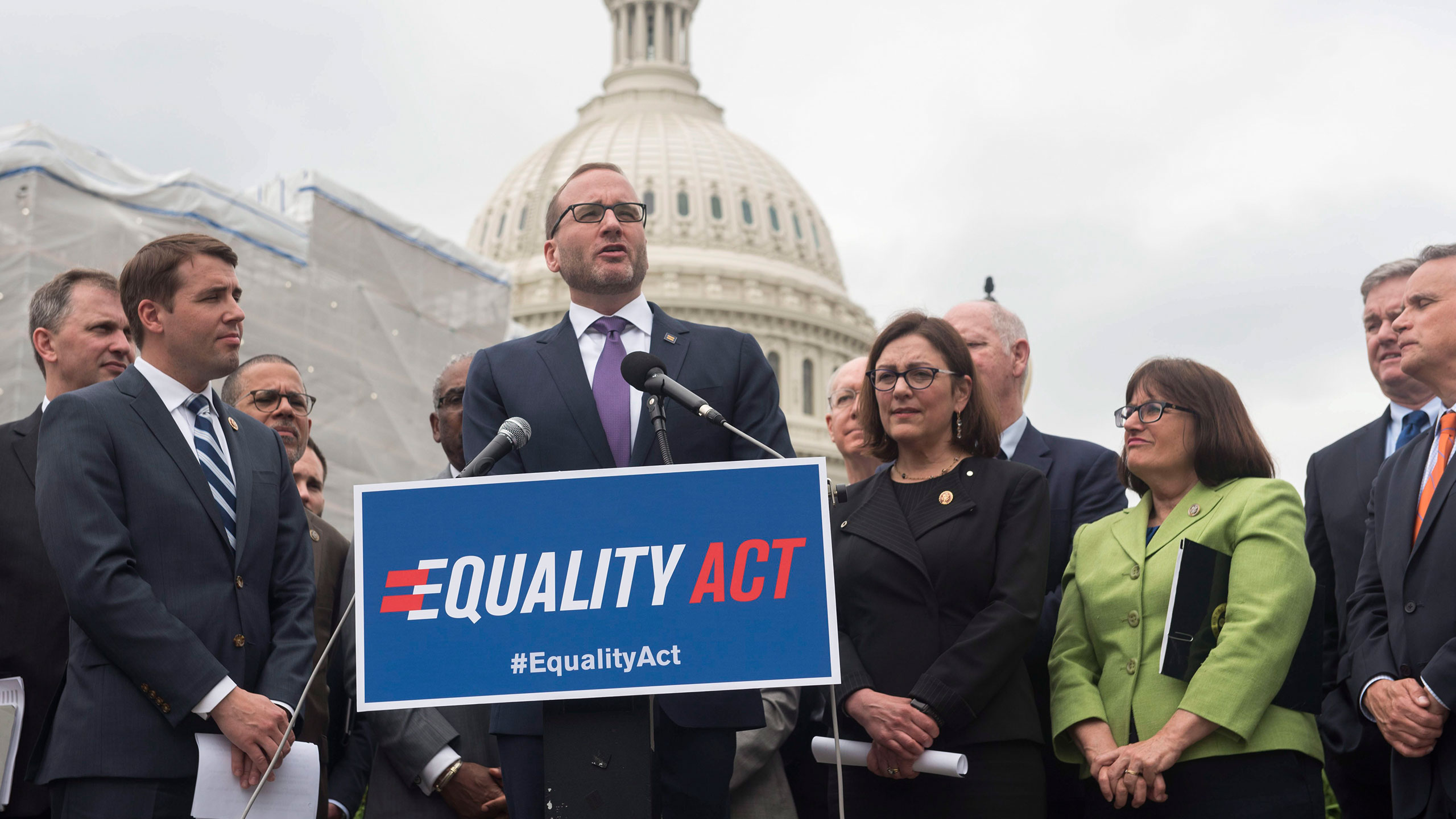More than 500 major businesses based in the U.S. expressed support for expanding the U.S. Civil Rights Act to explicitly include protections for LGBTQ2S+ people in a statement released Tuesday.
“Today’s announcement reinforces the breadth and depth of support for the Equality Act among America’s business leaders, who are joining a majority of Americans, hundreds of members of Congress, hundreds of advocacy organizations and more than 60 business associations—including the U.S. Chamber of Commerce and the National Association of Manufacturers—in endorsing the federal legislation,” said the Human Rights Campaign (HRC), which organized the initiative.
Originally launched in 2016, the Business Coalition for the Equality Act was organized to lobby for the passage of the landmark civil rights bill of the same name. If passed, the Equality Act would write explicit protections on the basis of sexual orientation and gender identity into federal civil rights law. Currently, just 22 U.S. states offer full protections for LGBTQ2S+ people in housing and public accommodations.
This year’s coalition is the largest in history, according to the HRC. The list of 503 businesses, which includes names like Apple, Coca-Cola, Disney, Google and Spotify, features more than 160 Fortune 500 companies. These companies employ more than 15 million people and operate in all 50 U.S. states.
Coalition members claim that the Equality Act’s passage, which would also enact protections in areas like education, health care and credit, would help level the playing field in workplaces across the country.
“Inclusion and diversity are essential to Honeywell’s success as a global enterprise,” said Cheya Dunlap, chief inclusion and diversity officer at Honeywell, in a statement. “We support protections for LGBTQ+ individuals under the Equality Act because we believe in the importance of creating a fair work environment built on equality, respect and achievement.”
The HRC noted that support for the Equality Act among businesses is only continuing to grow: 87 have joined the coalition since April 2021, including McDonald’s, Harley-Davidson, Sony, REI and Edward Jones, according to NBC News.
“In 2022, no person should ever be subjected to harassment or discrimination because of who they are,” said Joni Madison, interim director of HRC, in a statement. “The Equality Act will take major strides toward ensuring that LGBTQ+ people are treated with equal dignity in the eyes of the law, and affirm the longstanding American value that everyone deserves to be treated equally and fairly.”
The embrace of LGBTQ2S+ rights among corporate America largely matches the U.S. public’s own trajectory on equality: a 2021 survey from the Public Religion Research Institute revealed that a whopping 82 percent of respondents supported inclusive non-discrimination laws, an increase of 10 percentage points since 2015.
Legislation, though, has been slow to catch up with public opinion: the House of Representatives passed the Equality Act in February for the second time in the chamber’s history, but the bill has stalled in the Senate evenly divided between Republicans and Democrats. The Equality Act would require 60 votes to pass without facing a GOP filibuster, and none of the Senate’s 50 conservative members have committed to support it.
Some remain skeptical that advocacy from business leaders will push the bill through: critics point out that some of these same corporations are funding the legislators currently standing in the way of the Equality Act’s passage. For example, AT&T, American Airlines and Southwest Airlines have each donated at least USD $48,000 to Sen. Ted Cruz (R-Texas) since 2017, as NBC News reported.
Cruz, who has scored a zero on HRC’s annual Congressional Equality Index, has repeatedly spoken out against the Equality Act. He has claimed the legislation is “dangerous” and taken particular exception to protections for trans students competing in athletics, alleging these safeguards will force young women out of sports.
Despite some criticism of the campaign, advocates hope to keep pressure on both Congress and President Joe Biden, who pledged support for the Equality Act during his 2020 campaign. Biden promised to sign the bill into law during his first 100 days in office. Although he did not have that opportunity, Biden signed an executive order during his first week in office directing White House agencies to apply the Supreme Court’s 2020 ruling on LGBTQ2S+ workplace equality to all matters of public policy.
“It’s time for the Senators of both parties to support the Equality Act and send it to President Biden’s desk for his signature,” Madison said.


 Why you can trust Xtra
Why you can trust Xtra


